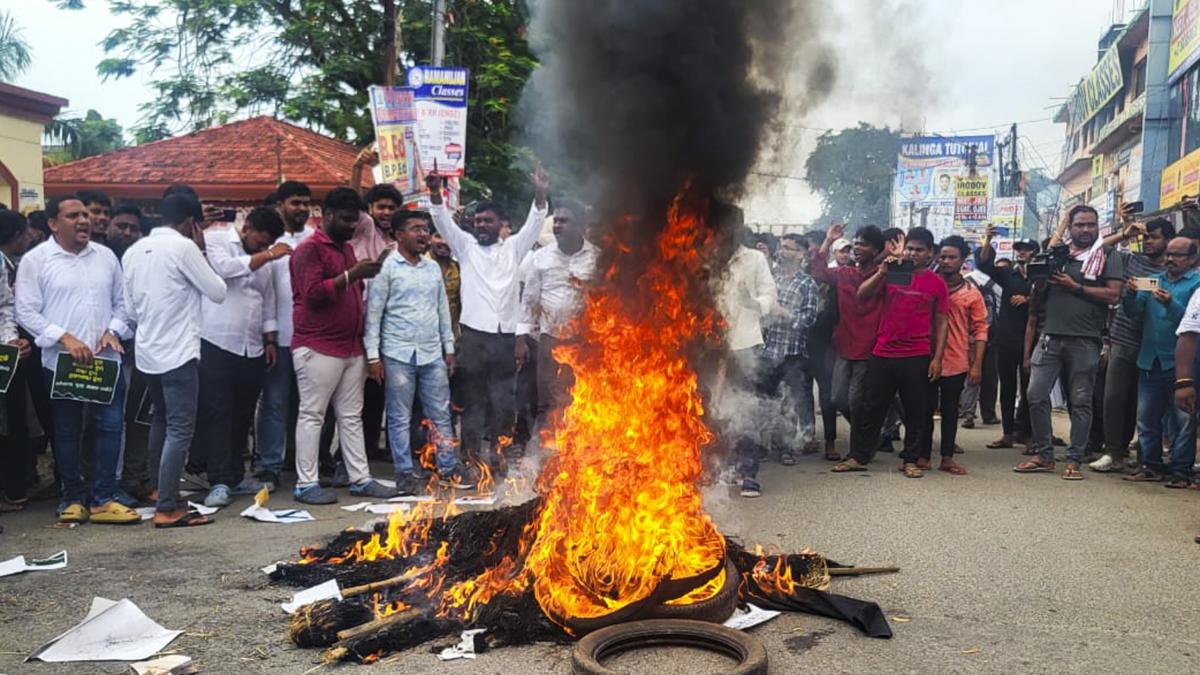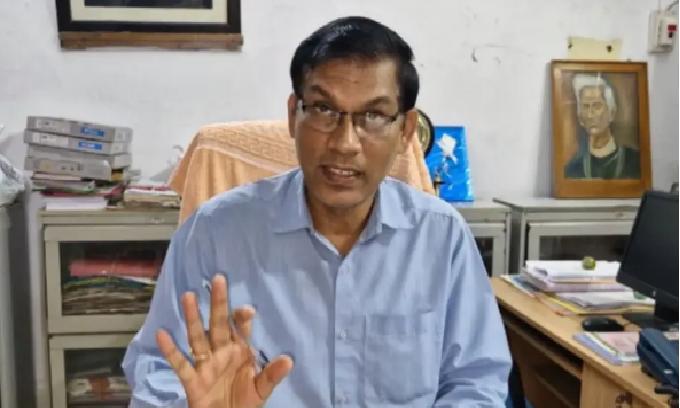Balasore, Odisha – A devastating conclusion to the Odisha Student Harassment Case has shocked the educational community as a 22-year-old college student died after setting herself on fire over institutional inaction regarding her sexual harassment complaint. This tragic incident highlights systemic failures in addressing sexual misconduct within educational institutions and the urgent need for comprehensive reforms.
Student’s Desperate Protest Ends in Death

The Odisha Student Harassment Case reached its tragic climax when the B.Ed student from Fakir Mohan Autonomous College in Balasore succumbed to her injuries after battling for life for three days. AIIMS Bhubaneswar confirmed her death at 11:46 pm on May 14, 2025, following extensive medical intervention.
“Despite adequate resuscitation and all possible supportive management, including renal replacement therapy at Burns ICU, she could not be revived and was declared clinically dead,” the medical institution stated, marking the devastating end to this Odisha Student Harassment Case.
The student had suffered over 90 percent burn injuries after self-immolation during a protest outside her college on July 12. Her father had earlier expressed his anguish, stating he could not recognize his daughter due to the severity of her injuries, emphasizing the tragic nature of this Odisha Student Harassment Case.
Sexual Harassment Complaint Against Professor


The Odisha Student Harassment Case originated from serious allegations against Professor Samir Kumar Sahu, the head of department, whom the student accused of demanding sexual favors. She had filed a formal complaint with the college’s Internal Complaints Committee on July 1, detailing months of abuse and threats from the professor.
In her detailed letter to the committee, the student described the systematic harassment she endured, making this Odisha Student Harassment Case a stark example of power abuse within educational institutions. Despite the gravity of her allegations, the college administration failed to take timely action against the accused professor.
The student was promised action within seven days following her complaint, but no measures were implemented, leading to her desperate decision to protest publicly. This institutional failure became the catalyst for the tragic events that followed in this Odisha Student Harassment Case.
College Administration’s Alleged Pressure Tactics


The Odisha Student Harassment Case reveals disturbing allegations of institutional pressure against the victim and her family. The student’s father accused college officials, including members of the Internal Complaints Committee and Principal Dilip Ghosh, of attempting to force withdrawal of the complaint.
Also Read: Golden Temple Bomb Threat: Shocking Email Triggers Security Alert
“They told me that if we didn’t withdraw, an FIR would be filed against me. They said I would be arrested,” the father revealed, highlighting the intimidation tactics allegedly employed by the college administration in this Odisha Student Harassment Case.
This pressure campaign demonstrated the institutional resistance to addressing sexual harassment complaints and the lengths to which some administrators would go to protect accused faculty members. The family’s allegations suggest a systematic attempt to silence the victim rather than investigate her claims thoroughly.
Student Protests and Self-Immolation Incident


The Odisha Student Harassment Case escalated dramatically when the student joined fellow students in protests outside the college gate on July 12. According to eyewitness accounts, during the demonstration, the student suddenly ran toward the principal’s office area and set herself on fire.
This desperate act of self-immolation in the Odisha Student Harassment Case shocked the entire educational community and highlighted the extreme desperation felt by the victim. Her decision to resort to such drastic measures underscores the failure of institutional mechanisms designed to protect students from harassment.
The incident immediately drew public attention to the Odisha Student Harassment Case and exposed the serious inadequacies in the college’s response to sexual harassment complaints. Her fellow students became witnesses to this tragic protest against institutional negligence.
Law Enforcement Response and Arrests


Following the Odisha Student Harassment Case developments, police took decisive action by arresting both Professor Samir Kumar Sahu and Principal Dilip Ghosh. These arrests demonstrate law enforcement’s recognition of the serious nature of the allegations and the institutional failures that contributed to this tragedy.
The arrests in this Odisha Student Harassment Case represent a significant step toward accountability, addressing both the original harassment allegations and the subsequent administrative failures. This legal response sends a strong message about the consequences of sexual harassment and institutional negligence.
Law enforcement’s swift action in the Odisha Student Harassment Case contrasts sharply with the college administration’s delayed response to the initial complaint, highlighting the importance of external oversight in addressing sexual harassment cases.
Chief Minister’s Response and Assurances


Odisha Chief Minister Mohan Charan Majhi expressed profound sadness regarding the Odisha Student Harassment Case outcome and assured the victim’s family of strict punishment for all guilty parties. His statement acknowledged the government’s responsibility in ensuring justice for the deceased student.
“I am deeply saddened to hear the news of the demise of the female student from FM Autonomous College,” the Chief Minister stated, emphasizing the government’s commitment to supporting the family through this Odisha Student Harassment Case tragedy.
The Chief Minister’s personal involvement in the Odisha Student Harassment Case demonstrates the political significance of this incident and the government’s recognition of the need for systemic reforms in educational institutions.
Final Statement
The Odisha Student Harassment Case serves as a stark reminder of the urgent need for effective mechanisms to address sexual harassment in educational institutions. This tragedy demands comprehensive reforms, better complaint procedures, and stronger accountability measures to prevent similar incidents and protect students from harassment and institutional negligence.

